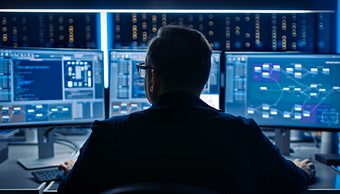business
Artificial Intelligence and Its Impact on Cybersecurity
June 18, 2018Artificial intelligence has become valued in businesses far and wide. But does AI present any cyber risks?
It has become increasingly clear that businesses of all shapes and sizes need to ramp up their cybersecurity efforts in 2018 and beyond. Cyber criminals have become more tech-savvy and as new devices emerge, they will potentially have access to more of our information, in multiple places. That being said, do artificial intelligence and machine learning present any new threats? Or will these new technologies aid companies in their cybersecurity efforts?
Some helpful definitions
Artificial intelligence- This is an area of computer science that attempts to create intelligent machines that work and react like humans do. Examples include virtual “personal assistants,” (i.e. Siri), video games (video game characters can learn your behaviors, respond to stimuli), smart, self-driving cars, purchase prediction (Amazon aims to anticipate your needs and send you items before you need them) and more.
Machine learning- This is a method of data analysis that seeks to enable computers to learn on their own. It is a branch of artificial intelligence based on the idea that systems can examine data, identify patterns and make decisions with little human intervention.
Cybersecurity and artificial intelligence
Companies are turning to artificial intelligence and machine learning to automate tasks and better detect bad behavior. Many use AI and machine learning to detect and respond to cybersecurity threats. This frees up time for employees to focus on the most valuable human-led tasks.
How will AI help cybersecurity?
AI can be used to look for ‘indicators of compromise’ across the firm’s network, both on site and in the cloud. With the enormous amounts of data nowadays, the global threat landscape is advancing quickly, meaning businesses must use advanced tools and technologies to get ahead of the threats.
There is a shortage of the critical skills needed in many industries, especially technical skills needed in manufacturing. For this reason, it’s become more evident that businesses cannot continue to do some things in a manual way. AI can automate procedures, free up manpower for other tasks, and automate complex processes for detecting attacks and reacting to breaches. By automating certain functions, you free up manpower for other tasks better fit for human involvement.
Does AI introduce new threats?
Unfortunately, yes. AI is often used to automate tasks, meaning cyber criminals will use this to their advantage. Previously “labor intensive” cyber-attacks will no longer be as difficult to carry out. Therefore, more “sophisticated” attacks will likely happen more often.
Technology executives also expect new attacks that exploit human vulnerabilities by using speech synthesis for impersonation, for instance. “White hat” researchers, in other words ethical hackers, hired by an organization to simulate attacks and assess organization security, are using AI to conduct experiments on how simple it is to use the technology for corrupt means.
Interested in learning more about AI and cybersecurity? Our Information Security Services Team can help.


